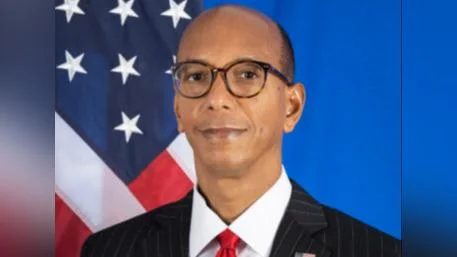Thank you, Mr. Chair, and the cosponsors, for organizing this meeting and to the briefers for highlighting the seriousness of threats to water security, particularly in conflict areas.
Excellencies, Colleagues, through President Trump’s leadership, the United States seeks to restore and maintain safety and security around the world. As today’s briefers have pointed out, few issues shape our safety, security, and prosperity as much as the availability of fresh water.
In a world where mismanagement, overuse, and aging infrastructure already pose challenges to water security worldwide, it is alarming to see evidence of critical water supplies and related infrastructure falling prey to those who would use water as a weapon against their enemies and civilian populations.
In Iraq and Syria, ISIS seized dams and water infrastructure to gain tactical advantage and deprive local populations.
In the Sahel and the Horn of Africa, terrorist groups like Boko Haram and al-Shabaab respectively have repeatedly sought to capitalize on droughts and fragile water systems by withholding water resources to further destabilize regions and drive recruitment.
Colleagues, to fulfill its founding mission of maintaining international peace and security, the United Nations plays an essential role in helping resolve complex international challenges. Working to ensure access to safe and reliable water sources can prevent conflicts, support economic development, and promote stability in vulnerable regions.
At the same time, national ownership in both conflict prevention and peacebuilding efforts is critical to lasting peace. International actors alone cannot prevent conflict nor can they ensure water security without national government commitment and action. By prioritizing risk-informed development and management of integrated water infrastructure nations can reduce the potential for water-related conflicts and threats to water and other critical infrastructure increase resilience promote national international security prosperity.
Bilateral regional transboundary river basin watershed management institutions play a crucial role in fostering cooperation among nations sharing water resources. These platforms can serve as vital mechanisms for conflict resolution even during periods of growing hostilities.
We call on all UN member states to work together toward a peaceful prosperous world for all.
In closing we call on fellow members of the Security Council consider how challenges posed by water insecurity may affect ability UN Peacekeeping Operations Special Political Missions carry out mandates.
I thank you.

